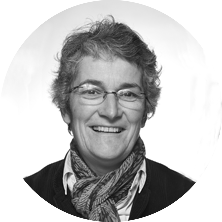- Home
- ESEC SCOPE
- Publications
- An education system in which everybody succeeds
An education system in which everybody succeeds
Visuel

Type of text :
Opinion
Type of referral :
Own initiative
Working group :
Section for Education, Culture and Communication
Date d'adoption
Date adopted : 05/12/2015
Rapporteur(s) :
Photo

Marie-Aleth GRARD
Qualified Individuals Group
Overview
Présentation
The ESEC's report from September 2011 entitled "Inequalities in the Education System" (Xavier Nau, opinion and report No. 2001-09) has already criticised the fact that the French education system is failing to mitigate inequalities resulting from social or cultural origin. The French National Education Reform Act dated 8 July 2013 particularly stresses the inclusive nature of the education system; the success of all students should be a central concern. To enable all children and young people to go on to be citizens in a democracy, fully integrated into society - this is the challenge that the education system must take up.
We cannot address the issue of inequality resulting from social or cultural origins without first hearing from the most socially excluded parents. They have a lot to tell us about the education system and about the orientation guidance received by their children. It is on the basis of progress made by children from the most deprived families that we can assess the capacity of the education system to ensure that all children succeed.
Priority education is one of the responses deployed to combat inequality in the education system. However, it cannot be the only response and it is no guarantee of an open education system that is transparent for everyone. Other approaches must also be taken.
The education system carries its own strengths within it. They are all those individuals, teaching teams and learning establishments that strive, create and innovate in order not to leave anybody by the wayside. They are many in number and they receive little attention. They open up avenues that can enable the obstacle of social determinism facing the education system to be overcome.
In the area of compulsory schooling (primary and intermediate secondary school), many interviews have given us an opportunity to hear about the experiences of actors in the education system working for the success of all children. These actors did not expound theories. Rather they recounted what they have experienced with pupils. Some make reference to long-standing teaching methods, e.g. Freinet, Montessori, institutional pedagogy, etc. Others draw upon these methods to adapt them to the actual circumstances within their establishments. Some make use of teaching experiments that have emerged in other countries and that have been shown to get results. They all strive to adapt to the needs of their pupils to try to make school a place where learning is a pleasure, without loosing sight of the need for knowledge acquisition.
Because school is not the only place where children and young people are educated, it was important to hear how projects undertaken in partnership with local neighbourhoods can come about and what these provide for children, within a relational fabric in which their parents play a special role.
By hearing from these classes, primary schools, intermediate secondary schools and neighbourhoods, some little explored avenues within the French education system have come to light. These have been shown to be beneficial for pupils at all school levels, even though there is obviously still room for improvement.